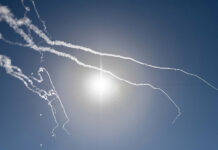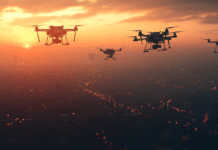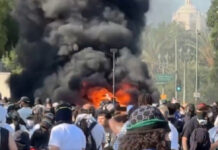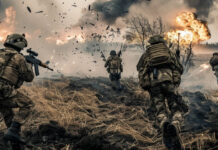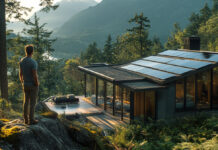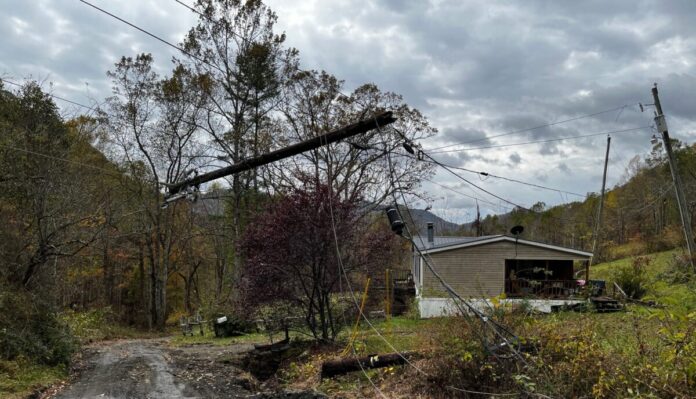
I am happy to report that after 18 days, some forward progress is being made here on the homestead and in our broader area.
First, we just installed Starlink and hooked it up to our existing mesh routers. The basement is now a spider web of Ethernet cables, but as long as we have sufficient power and no high winds, we will have Internet access. Thank you, Elon Musk, for the technology and for offering free service to hurricane victims.
As a result of having Internet access again, my plan is to return to regular blog posts on a M-W-F schedule.
Second, the solar power repair crew was here on Tuesday and repaired our system. The problem was a bad connector that caused an arc, an installer error since they did the wiring. We are now producing twice as much power as we were when 11 of our 21 solar panels were off line. That means no more headlamps and the ability to use all our appliances, at least on sunny days. My wife is looking forward to using the oven and I am looking forward to having lights in the bathroom, closets, and other dark corners of the house. It is day 18, and I still reach for the switch when I go into a room, even though the power is off at the circuit breaker.
These two steps are enough to bring us back into the 21st century. Thanks to our solar power system, even as crippled as it was, we never dropped back to the 1880s, which is what I have predicted life will be like in a long-term grid outage. The lack of connectivity made it feel like we were back to the 1970s when the nightly news was the only news you got and long distance calls were so expensive you kept them short. For the past two weeks, our only source of local news was a daily broadcast by the local AM radio station. Talk about a throwback!
More Good News
The state department of transportation has inspected our road and the washed-out ford and said they will make repairs “in a month or two.” So we continue to be stranded on our property, able to leave it only on foot or by borrowing a neighbor’s side-by-side and taking the long way around using old logging roads that are not suitable for my 4WD truck. Then we have to borrow a car or have friends pick us up and give us a ride somewhere.
The electric utility also sent an assessor up our road, noting each broken pole, fallen line, and tree leaning on the lines. Their next step is to have the tree-removal crews come and cut down fallen trees that are on the lines or blocking access. Only after they are done will the linemen come. While it is good to see movement, we expect it be at least another few weeks before we get grid power back.
Resupply
We have had friends resupply us, bringing gasoline for the generator and chain saws, chicken feed, fresh vegetables and other groceries. Because we can climb down and jump across the ford from rock to rock, we are able to carry things up the mountain, but when we have a heavy load, we borrow the neighbor’s Polaris and drive it to the house. I did not purchase a side-by-side or four-wheeler—which are ubiquitous around here—because of the high cost, but their obvious utility in a crisis is making me reconsider.
I had 27 gallons of gas on hand when the storm hit and burned 7 in the first few days. Thanks to resupply, I now have 50 gallons. My challenge may be using enough of it to return the cans to people in a timely manner.
Note to self: fill all gas cans prior to a hurricane or blizzard.
Note to people with propane-powered generators and large propane tanks: fill your tanks before hurricane season, and when they get half empty, refill them. This should be a prepper rule, just like filling your car’s gas tank when it drops below half.
What Worked
In hopes that our experience will benefit others, let me review a few things that worked and what didn’t.
Prepping paid off. We had water, some power, plenty of food, and shelter. Most others were missing two or more of the above. About half still are. Because we prepped, we are better off than almost everyone we know who got hit by the storm. It makes us feel a little guilty to be doing so well when we know people whose houses floated away or who had four feet of water in their homes.
Relationships are important. Our friends and neighbors have been a big resource and tremendously helpful. We have tried to return the favor. We have lent out supplies, like headlamps and dehumidifiers. We have given out drinking water, hot meals, and hot showers. We have done laundry for others. We have cleaned out refrigerators and freezers for those without power. We have fed people, and we’ve donated eggs to those in need. The community has definitely come together.
I would estimate that at least half of the road repairs and the majority of early tree removal were done by good ol’ boys with tractors and chainsaws.
Planning ahead is critical. For example, don’t live in a flood zone. To make life easier in a survival situation, we intentionally bought a house with gravity-fed water and a wood stove. We installed a solar power system and it has made our life during a disaster so much easier. No one knows if it will work after a nuclear bomb or an EMP, but the ability to operate without the grid has been a huge benefit post-disaster.
We have not had to sit around, wring our hands and say “What should we do?” because we had planned for a disaster. We didn’t plan for this exact disaster—I mistakenly thought we were largely immune to hurricanes in this location—but the planning for any disaster helped in this particular one.
What Didn’t Work
Technology. This should be obvious, but technology didn’t work after the storm. Not just electricity, but things like security cameras and else anything that relies on an app were useless. We do not have appliances or thermostats that connect to the web, and this experience would make me cautious. Too many things fail when there is no internet access. Have old-school back-ups.
Our alarm system still works, but we turned it off to conserve power. Without internet or cell service, it can’t call the police or fire department. For now, we count on the dog to bark and me to reach for a gun.
On the other hand, our stand-alone solar-powered motion-sensor lights on the outside of the house worked great.
The 911 system didn’t work until the cell towers started coming back on, which took ten to 14 days. We were told to drive (ha ha) to the nearest fire station if you needed help or to make a report.
Count on being on your own in a disaster. This is why I have 12-gauge and an AR-15 with three loaded magazines both upstairs and downstairs. I haven’t felt the need to reach for either one, but its’ good to know they are there when you cannot call 911. There have been reports of minor looting and people steeling downed power lines for their copper.
Credit Cards. For the first ten days, credit cards didn’t work anywhere, and they still don’t in many locations because there is no electricity or internet. Where they have cell phone service, merchants are using Square on their phone, but they prefer cash. You need to have cash for emergencies like this. I have not heard of a single person trying to pay for something with silver or gold. Cash is king. Have several hundred dollars on hand at all times.
ATMs don’t work. Without Internet, most of them are still down.
Gas Stations. When I borrowed the neighbor’s car last week, I filled up their tank. The standard gas pumps still don’t work, but one local station had two large above-ground tanks in their parking lot. I pulled up and they told me to keep the car running and to let them know when the needle said “full.” I paid cash and since it was a round number, I am sure it was an approximate cost. Still, I was happy to do it as the alternative would have been no gas at all.
TEOTWAWKI Versus an Inconvenience
I’ve seen reports Helene killed at least 240 people in Florida, Georgia, South Carolina, North Carolina, Tennessee, and Virginia with as many as 600 people still missing. For people who lost loved ones or their homes, this was the end of the world as they know it, or very close to it. It is a catastrophe that will result in mental anguish and financial hardship.
Driving into town and seeing the damage makes us realize how lucky we are and how lightly we got off. We are alive and well. Our house has minor damage and our road and land has more, but we are mostly suffering from inconvenience, not a life-changing catastrophe. Some of this is because we made smart choices, but some of it is also luck. We can’t count on the latter but we can all make smart decisions.
Stack the odds in your favor by prepping and make your own luck. You never know what you might need it.

